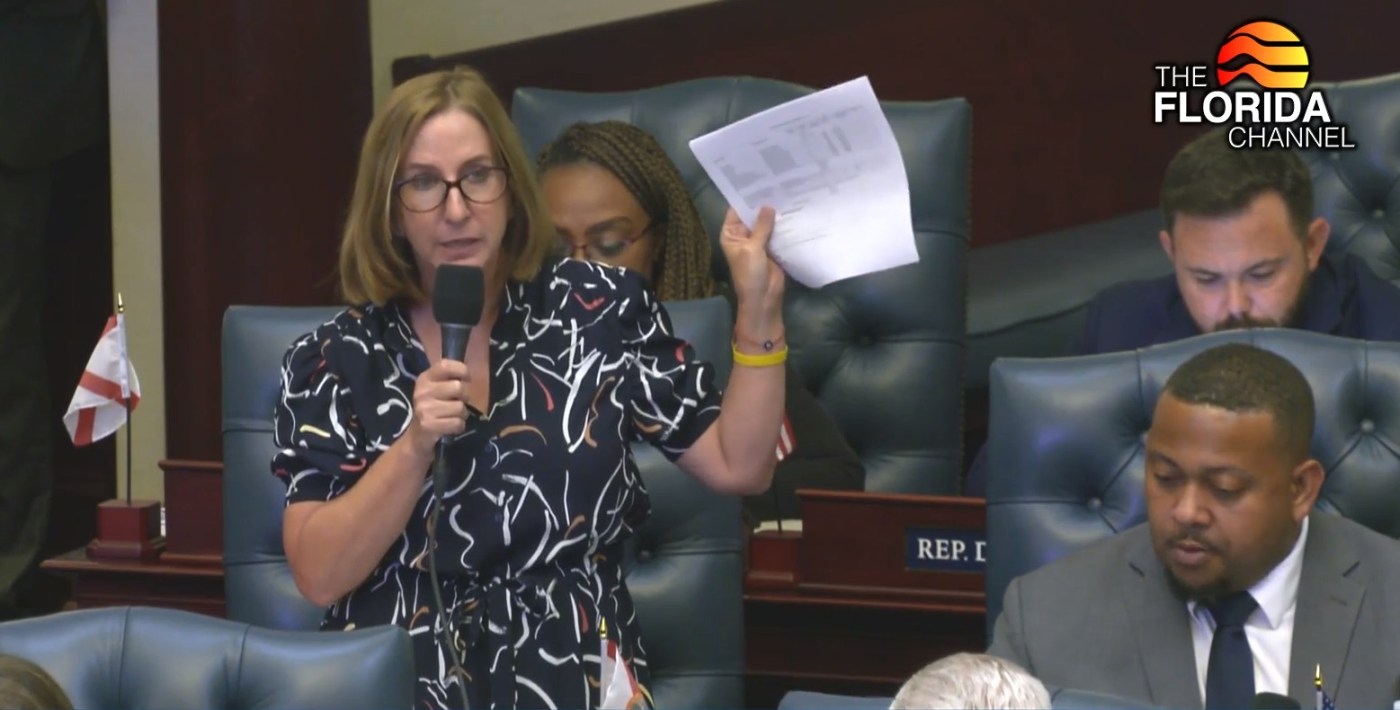Top Stories
Florida’s New Charter School Law Threatens Public Education NOW

UPDATE: Starting this week, a controversial new law in Florida is poised to significantly disrupt public education by allowing charter schools to claim classroom space in traditional public schools without incurring any costs. This shocking development has sparked outrage among parents and educators, as it effectively prioritizes charter operators over the educational needs of 3 million students in Florida’s public school system.
The law, which introduces “Schools of Hope,” permits certain companies to operate charter schools within existing public school facilities. These charter schools will not be responsible for expenses such as security, utilities, or support staff, leaving local school districts to absorb these costs. State Rep. Robin Bartleman, representing House District 103, has raised alarms about the negative impact this will have on traditional public schools.
“Why are we forced to spend money meant for traditional public-school students to support these charter schools?” Bartleman questioned. “This is a real estate grab with no guardrails to protect our students.”
The new law has already triggered a wave of demand letters from charter operators, laying claim to classrooms in over 27 schools in Broward County alone. This includes high-performing “A” rated schools and special education centers, where small teacher-to-student ratios are critical. The law effectively strips local school boards of their authority, allowing charter schools to claim space on a first-come, first-served basis.
This unprecedented move not only challenges the financial stability of traditional public schools but also jeopardizes the quality of education for neighborhood students. “These charter schools should not be funded on the backs of our neighborhood public-school students,” Bartleman emphasized. The operational costs for services like electricity, nurses, and cafeteria staff will now be an added burden for already stretched school districts.
Currently, public school funding is allocated based on student enrollment. However, with charter schools now siphoning off resources, traditional public schools face potential financial shortfalls. “These charter schools also have access to millions in federal grants that districts do not, making this an unfair competition,” Bartleman added.
The implications of this law extend far beyond finances. The competition for space among charter operators could lead to chaotic classroom arrangements, with no regard for the educational needs of students. As Bartleman warns, “This clearly demonstrates that this is about a business opportunity and the bottom line — not about children.”
In response to this urgent situation, educators and parents are calling for immediate legislative action to establish protections for public schools. They demand that lawmakers implement guardrails that would require charter schools to pay their fair share for services and negotiate terms equitably with school districts.
The stakes are high for nearly 3 million families who rely on public schools for their children’s education. Parents and educators alike are urged to voice their concerns and demand a legislative rewrite before the impacts of this law cascade further into the education system.
As this situation develops, it is crucial for communities to stay informed and engaged. The future of Florida’s public education system hangs in the balance, and immediate action is needed to protect the interests of traditional public-school students.
For ongoing updates, follow the conversation on social media and engage with local representatives to ensure that the voices of parents and educators are heard.
-

 Science4 weeks ago
Science4 weeks agoIROS 2025 to Showcase Cutting-Edge Robotics Innovations in China
-

 Lifestyle4 weeks ago
Lifestyle4 weeks agoStone Island’s Logo Worn by Extremists Sparks Brand Dilemma
-

 Politics3 weeks ago
Politics3 weeks agoJudge Considers Dismissal of Chelsea Housing Case Citing AI Flaws
-

 World4 weeks ago
World4 weeks agoBravo Company Veterans Honored with Bronze Medals After 56 Years
-

 Health4 weeks ago
Health4 weeks agoStartup Liberate Bio Secures $31 Million for Next-Gen Therapies
-

 Science4 weeks ago
Science4 weeks agoArizona State University Transforms Programming Education Approach
-

 Health4 weeks ago
Health4 weeks agoTop Hyaluronic Acid Serums for Radiant Skin in 2025
-

 Top Stories4 weeks ago
Top Stories4 weeks agoIndonesia Suspends 27,000 Bank Accounts in Online Gambling Crackdown
-

 Sports4 weeks ago
Sports4 weeks agoMel Kiper Jr. Reveals Top 25 Prospects for 2026 NFL Draft
-

 Lifestyle4 weeks ago
Lifestyle4 weeks agoMary Morgan Jackson Crowned Little Miss National Peanut Festival 2025
-

 World4 weeks ago
World4 weeks agoHoneywell Predicts Record Demand for Business Jets Over Next Decade
-

 Sports4 weeks ago
Sports4 weeks agoYamamoto’s Mastery Leads Dodgers to 5-1 Victory in NLCS Game 2









